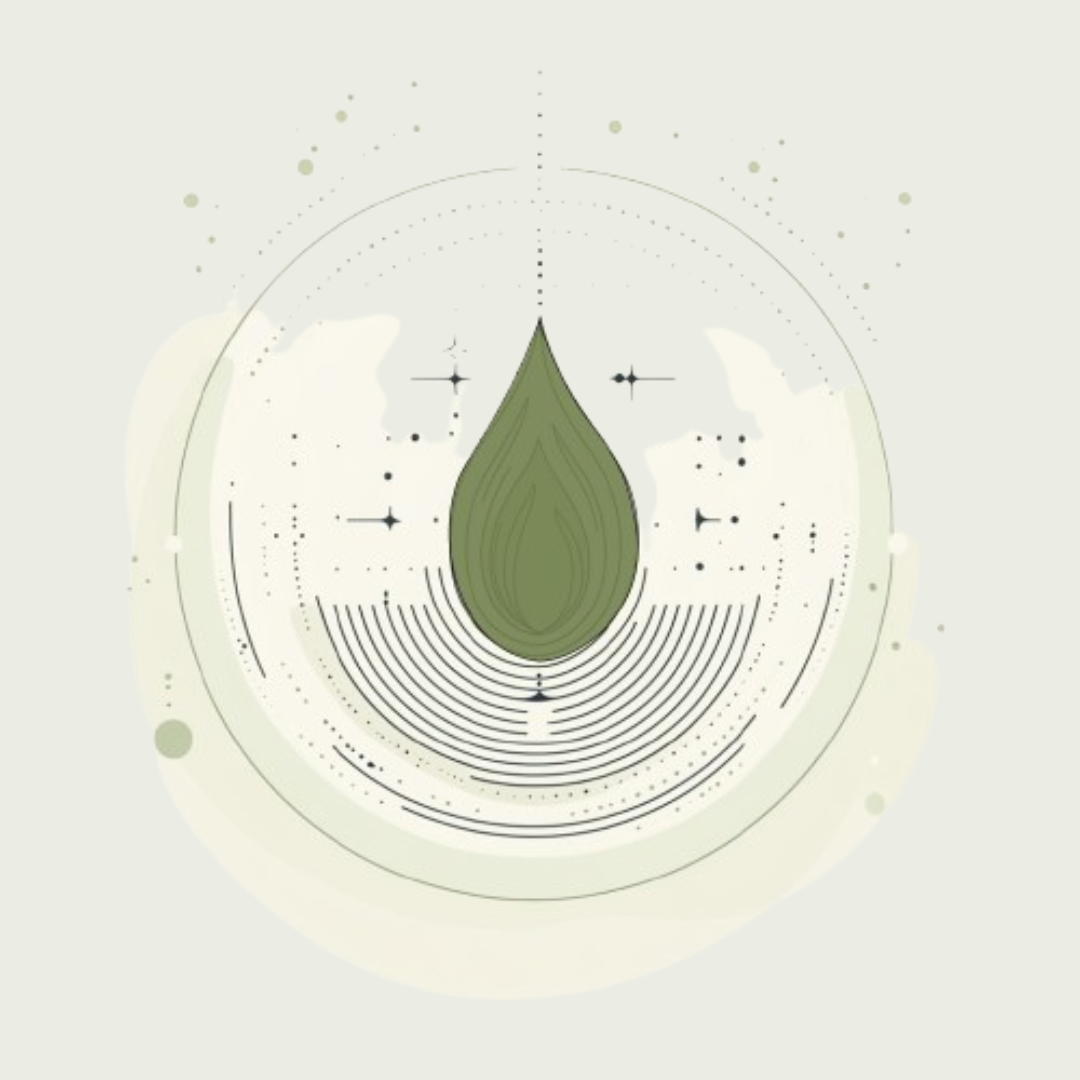Ever felt that sudden, burning urge to pee, only to find it's a trickle at best? Or maybe it's a constant, nagging discomfort in your lower abdomen? These could be signs of a urinary tract infection (UTI), a common but bothersome condition that can disturb your daily activities.
Ayurveda sees UTIs as a sign of imbalance in the body's natural energies, often linked to excess heat (Pitta dosha imbalance) and improper hydration. Instead of just soothing symptoms, Ayurveda focuses on restoring balance and strengthening your body's natural defenses. Let’s explore what causes UTIs, how they affect your health, and how Ayurveda offers a holistic path to relief, treatment and prevention.
What is UTI?
Urine should be bacterium and germ-free for optimal health because it is formed when the kidneys clear waste and excess water from our bodies. It usually travels through your urinary system uncontaminated. However, certain bacteria can get into the urinary system, causing infection and irritation. This is called an Urinary Tract Infection or a UTI.
Bacteria like E.Coli and Klebsiella pneumoniae often enter the urinary tract and cause infections that can occur in several regions inside the urinary tract.
Types of UTI
There are four major types of UTIs:
- Urethritis (Affects the urethra): It is an infection that spreads in the urethra, the narrow tube through which the urine passes. This can cause a discharge and burning sensation while peeing.
-
Cystitis (Affects the bladder): A bacterial infection that sometimes has progressed from the urethra up into the bladder.
As a result, a person may feel the recurring need to pee. Peeing may also hurt, and low belly pain and cloudy or bloody urine are other symptoms.
Ayurvedic tablets like the Chandraprabha Gulika are sourced from the timeless wisdom of the Ayurveda book -Bhaishajyaratnavali. It helps manage recurrent urinary tract infections and reduces inflammation.
- Pyelonephritis (Affects kidneys): It can be caused by urinary tract obstruction or a kidney infection that has spread throughout the system. If the urinary system is blocked, urine may flow back into the ureters and kidneys.
- Vaginitis (Affects the vagina): It is the inflammation of the vagina in women, often causing symptoms like itching, burning, abnormal discharge, and discomfort. It can result from infections, imbalances in vaginal flora, or irritants.
Common Symptoms of UTI
Here are a few signs of urinary tract infection:
- A scorching sensation after urinating.
- A persistent or intense urge to urinate, even though little urine is produced when you do.
- Pee that is cloudy, black, red, or has an odd smell.
- Feeling weak or exhausted.
- Cold or fever (a sign that the infection may have spread in your kidneys).
- Side (flank), abdominal, or pelvic pain.
- Pressure in the lower pelvis.
Who Can Get an Urinary Tract Infection?
Urinary tract infections (UTIs) can affect anyone, but some people are more prone than others. Let's break it down:
Urinary Tract Infection in Women
UTIs are more common in women, especially as they reach their mid-30s. This is often because women have shorter urethras, making it easier for bacteria to reach the bladder.
Hormonal changes, certain stages of the menstrual cycle, pregnancy, and menopause can also increase the risk. Using spermicide, increased sexual activity, a history of UTIs, and constipation are other contributing factors.
If you are looking for natural formulations for urinary tract health, ayurvedic syrups like Punarnavasava (Asava) can help promote the overall health of the urinary tract and kidneys.
Urinary Tract Infection in Men
Men can also get UTIs, particularly if they have trouble urinating, often due to prostate issues. In younger men, UTIs can sometimes be linked to sexually transmitted infections.
Ayurvedic products like Gokshuradi Gugulu and Brahatyadi Kwath (200 ml) will support a healthy urinary system in both men and women.
UTI Prevention
While all of these are still ongoing research, many people have found these tips helpful:
- Good Hygiene: Proper hygiene, especially for women (wiping front to back), is key.
- Hydration: Drinking plenty of water lets flush bacteria out of the urinary tract.
- Proper Urination: Don't hold it in! Frequent urination helps remove bacteria. Avoid bladder irritants like alcohol, caffeine, and spicy foods.
- Before and After Intercourse: Urinating before and after sex can help prevent bacteria from entering the urinary tract.
- Birth Control: Diaphragms can increase UTI risk. Talk to your doctor about other options.
- Clothing: Cotton underwear can help keep the area dry and prevent bacterial growth.
Also Read: Ayurvedic Remedies And Tips For Pregnancy Nausea
Urinary Tract Infection Treatment with Ayurveda
Ayurvedic products like Brahatyadi Kwath (200 ml) can be used in healing diseases of the urinary system. The intake of Brahatyadi Kwath helps relieve pain and burning micturition and other diseases affecting the urinary tract.
You can also consider adding Renogest Tablet, a natural diuretic, antibacterial and anti-microbial formulation to your daily routine. This is useful in recurrent urinary tract infections (UTIs). It is composed of a blend of herbs and classical formulations such as Musta (Cyperus rotundus), Guduchi (Tinospora cordifolia), Haridra (Curcuma longa) etc.
Ayurvedic Diet to Prevent UTI
An Ayurvedic diet helps prevent UTIs by balancing Pitta dosha, reducing excess heat in the body, and supporting natural detoxification for a healthier urinary tract. Follow these, in your diet to see better results.
- Limit spicy foods.
- Drink plenty of fluids, including water, fresh juices (pineapple, orange, sugarcane, lemon), and coconut water.
- Eat lots of seasonal fruits.
- Include probiotics (like those found in yoghurt) in your diet.
- Use cinnamon in cooking or herbal teas.
- Chew on cardamom pods.
Note: This information is for educational purposes only and should not be considered medical advice. Consult an Ayurvedic practitioner if you have existing medical conditions before adding any medicines to your routine.
The Bottom Line
So, there you have it—a glimpse into the Ayurvedic approach to treating UTIs. From cranberry-like herbs to soothing practices, Ayurveda offers a natural path to urinary tract health.
Remember, a holistic approach that combines these remedies with healthy lifestyle choices is your best defence against UTIs.
If you're struggling with recurring UTIs or want to explore Ayurveda's personalised approach, consider consulting with a qualified Ayurvedic practitioner. They can guide you on the best herbs, diet, and lifestyle changes to keep your urinary tract happy and healthy. Discover Kerala Ayurveda's range of herbal formulations that promote urinary tract health.
Schedule a consultation with our experienced Kerala Ayurveda Ayurvedic practitioners for personalized advice & recommendations tailored to your specific needs.
Note: Consult an Ayurvedic practitioner if you have existing medical conditions before adding any medicines to your routine.
FAQs
1. Can Ayurveda effectively treat UTIs?
Ayurveda provides a holistic approach to UTI management, focusing on going for the root cause of the infection and strengthening the body's natural defenses. While it may not provide immediate relief like antibiotics, it can be effective in managing symptoms and preventing recurrence, especially when combined with lifestyle changes and dietary adjustments.
2. What are some common Ayurvedic remedies for UTIs?
Several herbs are traditionally used for UTI support, including Gokshura, Punarnava, and Chandan. These may be taken as decoctions, powders, or tablets. Drinking plenty of fluids, especially cranberry juice (unsweetened), and maintaining good hygiene are also important. Consulting with an Ayurvedic practitioner is recommended for personalised recommendations.
3. How does Ayurveda prevent recurring UTIs?
Ayurveda emphasizes balancing the doshas (Vata, Pitta, Kapha) and strengthening the immune system to prevent recurring UTIs. This involves dietary modifications, lifestyle adjustments (such as stress management and adequate sleep), and the use of specific herbs that promote urinary tract health. A qualified practitioner can help you identify your individual needs and create a personalized plan.





